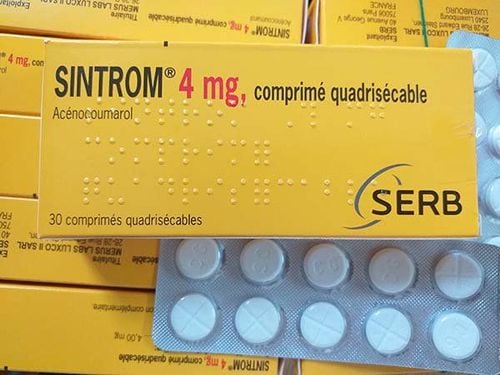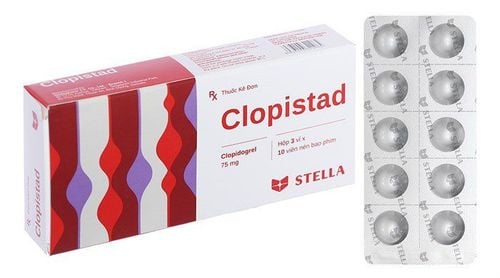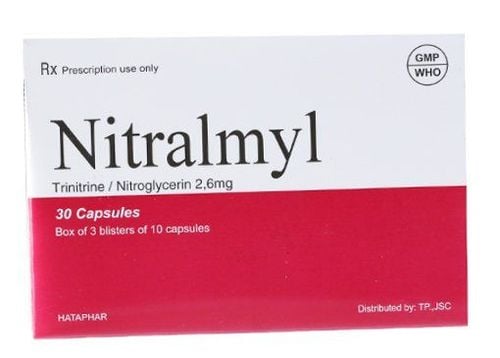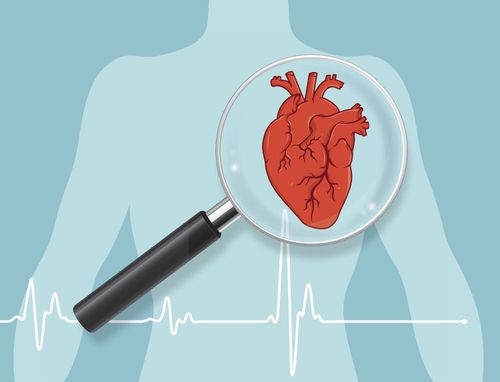This is an automatically translated article.
Post by Master, Doctor Nguyen Van Phong - Cardiovascular Center - Vinmec Times City International General HospitalAtrial fibrillation is the result of chaotic electrical signals in the upper heart chambers (atria). Atrial fibrillation causes an irregular and fast heartbeat. Treatment of atrial fibrillation needs to be methodical and timely.
1. When and why should medication be used to treat atrial fibrillation?
For many patients with atrial fibrillation, medication is the best way to treat it. The drug can help prevent blood clots, control heart rate, and reduce the risk of stroke in patients with atrial fibrillation.In some cases, if a patient has had untreated atrial fibrillation before, the doctor can bring the heart rate back to normal with certain medications (medical cardioversion).
2. Anticoagulants for atrial fibrillation
Because atrial fibrillation makes your heart beat irregularly, blood can pool in the atria leading to the formation of blood clots, increasing your risk of having a stroke because the blood clot travels to the brain.Anticoagulants are medicines that help prevent blood clots from forming in the atria. Your doctor may prescribe an anticoagulant to reduce your stroke. The most common are Warfarin or Sintrom, Previscan... (anticoagulants of the Vitamin K antagonist group). Although the drug works to reduce the risk of stroke, you must have regular blood clotting tests to ensure your health.
If you need to perform a certain bleeding procedure such as dental, surgery, minor surgery... you need to tell your doctor that you are taking anticoagulants before the procedure.
Some foods can reduce the effect of vitamin K antagonist anticoagulants such as: Lettuce, spinach and cruciferous vegetables ... should be noted when using.
Currently, new generation anticoagulants including apixaban (Eliquis), dagatran (Pradaxa) or rivaroxaban (Xarelto) also help reduce the risk of stroke. These drugs do not require frequent blood test monitoring and diet also has little effect on how they work. However, you may still have bleeding problems as with vitamin K antagonists.

3. Drugs that slow the heart rate
When your heart beats too fast you often feel tired, short of breath, lack of vitality, medicine can help slow the heart beat. Heart rate < 100 beats/min can help you feel more comfortable.Treatment regimens for atrial fibrillation are usually beta blockers (Concor, Betaloc, Nebilet, Dilatrend...) or calcium channel blockers (Tildiem, Isoptine ...) depending on health status and accompanying diseases.
4. Reversal to normal heart rhythm – Sinus rhythm
In some cases, patients with atrial fibrillation need cardioversion to bring the heart rate back to sinus rhythm.This treatment regimen for atrial fibrillation is performed when the patient is under light anesthesia, the doctor uses a patch or an electric shock machine electrode placed above the sternum and at the apex of the heart, then conducts a mild shock to establish sinus rhythm again.
The doctor may need a transesophageal echocardiogram before the electric shock (after the patient is anesthetized) to determine that there is no blood clot in the heart. If you have a blood clot in your heart, your doctor may prescribe anticoagulants to take for a few weeks and then consider an electric shock again.
About 50% of patients after an electric shock have recurrent atrial fibrillation, so doctors often prescribe antiarrhythmic drugs to help maintain a regular sinus rhythm for the heart. In this case, the patient needs regular follow-up visits because antiarrhythmic drugs can cause side effects including the risk of arrhythmia.
5. Thoroughly treat atrial fibrillation with catheter ablation intervention
When medications and electric shocks don't work, your doctor may suggest another treatment regimen for atrial fibrillation called catheter ablation. While you're sedated, your doctor will insert a catheter from a vein in your thigh up to your heart, where he or she will use special instruments to destroy surgery there (around the veins). lungs) by heating (RF) or freezing (Cryo).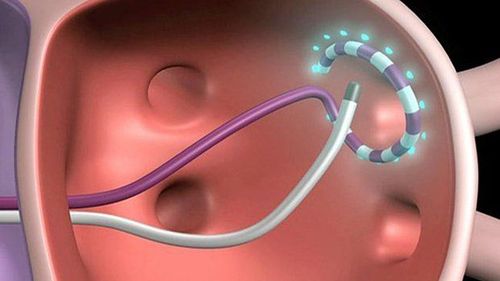
6. Heart surgery
If medications and ablation procedures do not completely cure atrial fibrillation, or if you have certain other heart problems such as: valvular disease, coronary artery disease, etc., your doctor may recommend surgery. Maze. In simple terms, a surgeon will make many precise cuts in your atria to cut off the abnormal conduction signals, returning your heart rhythm to normal.This treatment regimen for atrial fibrillation is often a last resort for patients with atrial fibrillation causing serious heart problems.
7. Lifestyle changes
Regardless of how you treat your atrial fibrillation, changing your daily habits can greatly benefit your heart. A heart-healthy lifestyle is:Cut down on caffeine (some people find that coffee, energy drinks, and tea make symptoms worse); Check medicines to treat stuffy nose, runny nose for drugs that cause vasoconstriction; Limit alcohol intake; Exercise regularly ; Quit smoking; Consult your doctor at any time if symptoms worsen. Currently, Cardiovascular Center - Vinmec International General Hospital is one of the leading centers in the country for examination, diagnosis, screening and treatment of cardiovascular diseases. Vinmec not only has the convergence of a team of experienced and reputable leading experts in the field of surgical treatment, internal medicine, interventional cardiac catheterization, but also has a system of modern equipment, on par with The most prestigious hospitals in the world such as: MRI 3 Tesla (Siemens), CT 640 (Toshiba), high-end endoscopy equipment EVIS EXERA III (Olympus Japan), high anesthesia system Avace level, Hybrid operating room according to international standards... Especially, with the space designed according to 5-star hotel standards, Vinmec ensures to bring patients the most comfortable, friendly and reassuring comfort. .
Please dial HOTLINE for more information or register for an appointment HERE. Download MyVinmec app to make appointments faster and to manage your bookings easily.







